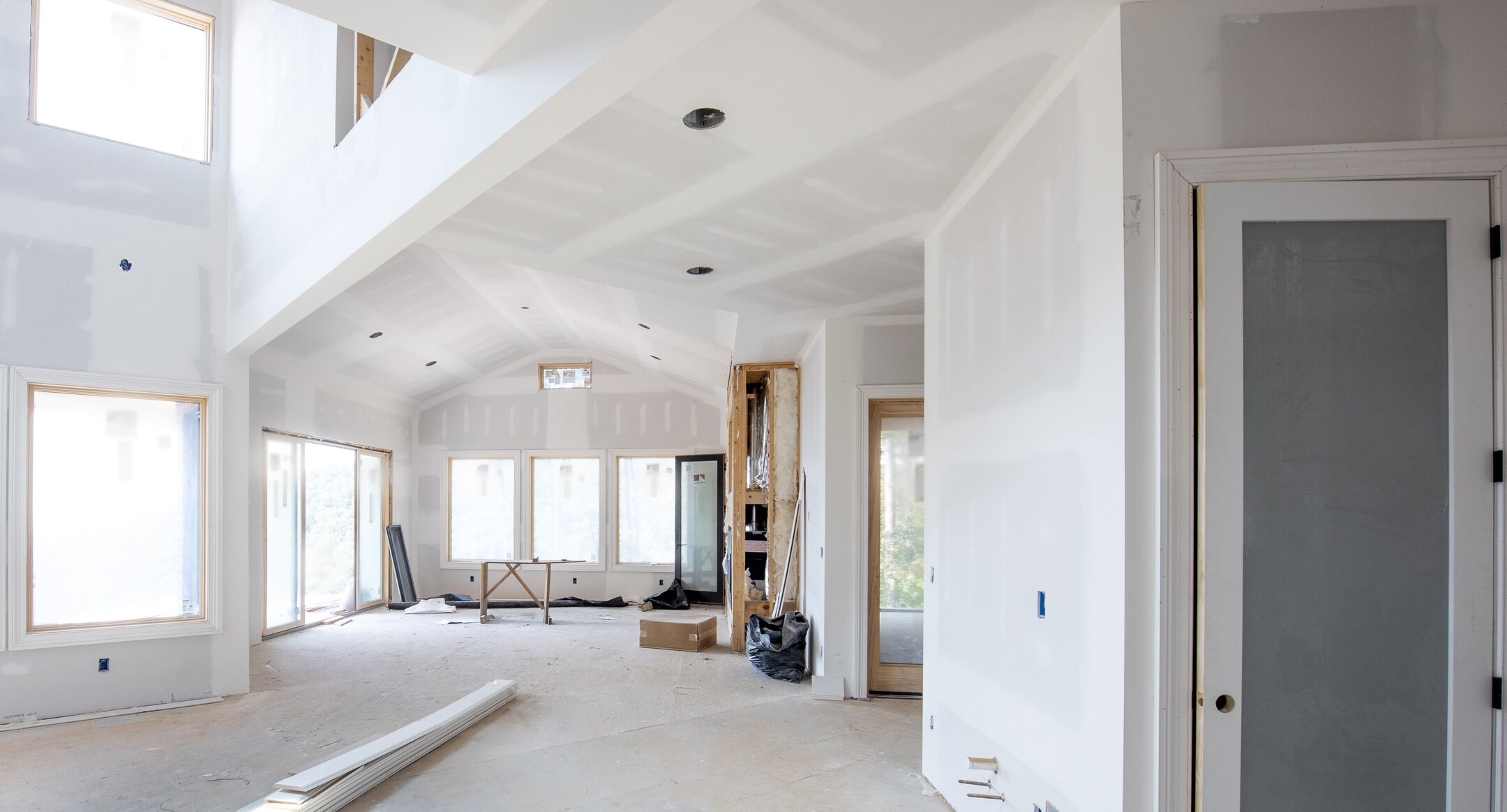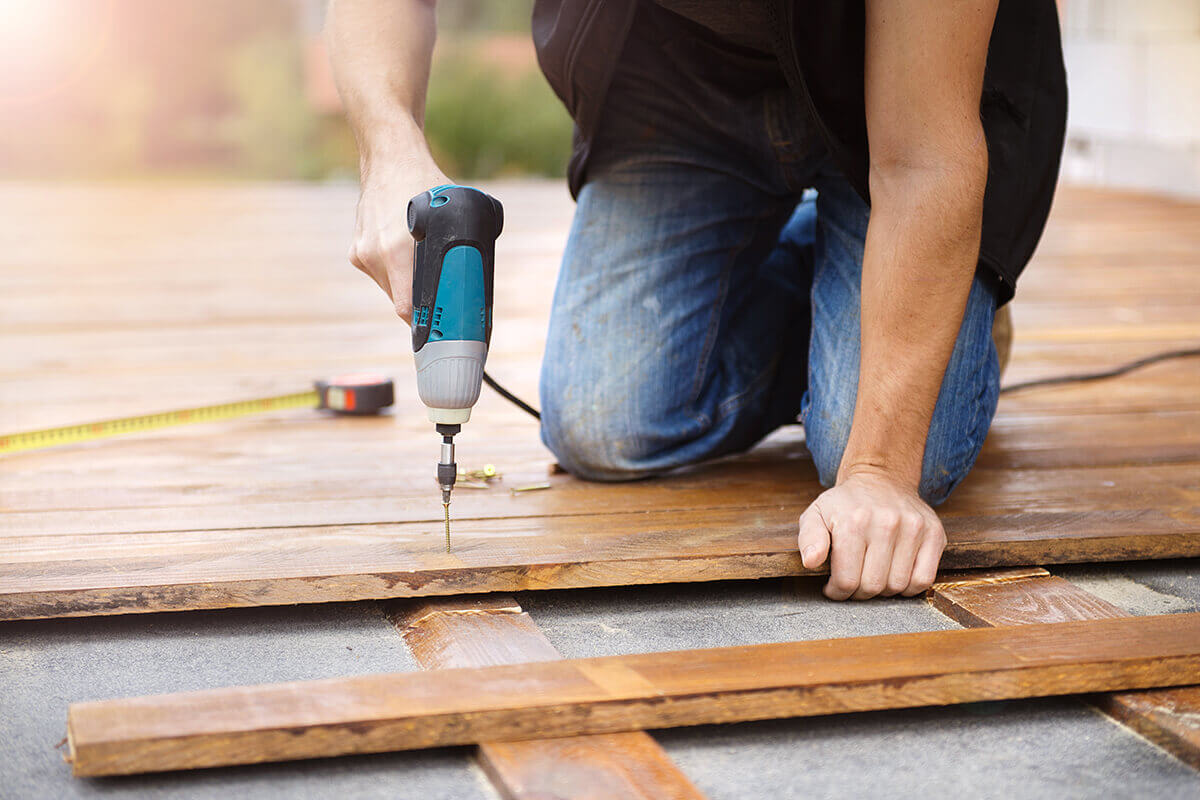Home>Renovation & DIY>Home Renovation Guides>How Long Does A Homeowner Have To Cancel A Home Improvement Contract


Home Renovation Guides
How Long Does A Homeowner Have To Cancel A Home Improvement Contract
Modified: January 3, 2024
Learn about the homeowner's rights to cancel a home improvement contract and the time frame for doing so. Get expert guidance on home renovation contracts.
(Many of the links in this article redirect to a specific reviewed product. Your purchase of these products through affiliate links helps to generate commission for Storables.com, at no extra cost. Learn more)
Introduction
Embarking on a home improvement project is an exciting endeavor for homeowners. Whether it involves renovating a kitchen, adding a deck, or remodeling a bathroom, these projects hold the promise of enhancing comfort, functionality, and property value. However, amidst the eagerness to commence such projects, it's crucial for homeowners to have a comprehensive understanding of the legal aspects involved. One of the fundamental components of initiating a home improvement project is the signing of a home improvement contract. This contract serves as a safeguard for both the homeowner and the contractor, outlining the scope of work, project timeline, costs, and other essential details.
Understanding the intricacies of a home improvement contract, including the rights and responsibilities it entails, is paramount for homeowners. Specifically, being aware of the timeframe within which a homeowner can cancel a home improvement contract is vital. This knowledge not only empowers homeowners but also ensures that they can make informed decisions throughout the home improvement process. In this comprehensive guide, we will delve into the details of home improvement contracts, the right to cancel such contracts, state-specific regulations, the timeframe for cancellation, and the potential consequences of canceling a home improvement contract. By shedding light on these crucial aspects, homeowners can navigate the home improvement landscape with confidence and clarity. Let's embark on this enlightening journey to unravel the intricacies of home improvement contracts and the associated rights of homeowners.
Key Takeaways:
- Homeowners typically have 3 to 7 days to cancel a home improvement contract, known as the “cooling-off” period, without facing penalties. It’s important to understand this timeframe before signing any agreement.
- Canceling a home improvement contract may lead to financial and legal consequences, such as forfeiting deposits or straining the relationship with the contractor. Homeowners should carefully review the terms and potential repercussions before making a decision.
Understanding Home Improvement Contracts
Home improvement contracts are legally binding agreements between homeowners and contractors, outlining the terms and conditions of a specific home improvement project. These contracts serve as a blueprint for the entire project, encompassing crucial details such as the scope of work, project timeline, materials to be used, costs, payment schedule, and warranties. By delineating these essential elements, home improvement contracts provide clarity and protection for both parties involved.
When entering into a home improvement contract, it is imperative for homeowners to thoroughly review and comprehend the document before appending their signature. This entails scrutinizing the specifics of the project, ensuring that all desired work is clearly outlined, and verifying that the agreed-upon materials and finishes are accurately detailed. Additionally, homeowners should pay close attention to the project timeline, ensuring that it aligns with their expectations and schedules. Understanding the payment terms and any provisions related to unforeseen circumstances or project modifications is also crucial.
Furthermore, home improvement contracts often incorporate clauses related to dispute resolution, change orders, and warranties, all of which necessitate careful consideration. By grasping the nuances of these contractual elements, homeowners can mitigate potential misunderstandings and discrepancies throughout the course of the project. In essence, a well-crafted home improvement contract serves as a protective shield, offering clarity, accountability, and recourse in the event of unforeseen developments or disagreements.
The Right to Cancel a Home Improvement Contract
Amidst the excitement of initiating a home improvement project, homeowners should be cognizant of their right to cancel a home improvement contract under specific circumstances. This right, often referred to as the “cooling-off” period, grants homeowners the opportunity to reconsider the signed contract and retract their agreement without facing penalties or repercussions. The cooling-off period is designed to safeguard consumers from making hasty decisions and allows them time to carefully evaluate the terms of the contract.
It is important to note that the right to cancel a home improvement contract is typically subject to certain conditions and timelines, which may vary based on state-specific regulations and the nature of the contract. During this cooling-off period, homeowners are entitled to rescind the contract for any reason, whether it pertains to financial concerns, changes in project scope, or simply a change of mind.
Understanding the specifics of the right to cancel is crucial for homeowners embarking on a home improvement project. It provides a valuable safety net, ensuring that homeowners have the latitude to reconsider their decision and make an informed choice without being bound by a hastily signed contract. By being aware of this right and its associated conditions, homeowners can navigate the home improvement process with confidence, knowing that they have an opportunity to reassess their commitment if necessary.
State-Specific Regulations on Canceling Home Improvement Contracts
When it comes to canceling home improvement contracts, it is essential for homeowners to be cognizant of state-specific regulations that govern this process. Each state may impose distinct rules and timelines regarding the cancellation of home improvement contracts, and it is incumbent upon homeowners to familiarize themselves with these regulations to ensure compliance and understanding.
State laws may delineate the duration of the cooling-off period, specifying the number of days within which a homeowner can cancel a home improvement contract without incurring any penalties. Additionally, some states may require contractors to provide specific disclosures or documentation regarding the homeowner’s right to cancel, further reinforcing consumer protection measures.
Moreover, state-specific regulations may encompass provisions related to the format and content of home improvement contracts, ensuring that they adhere to statutory requirements and provide homeowners with comprehensive information about their rights and recourse options. By adhering to these regulations, contractors and homeowners alike can foster transparency and accountability throughout the home improvement process.
It is incumbent upon homeowners to conduct thorough research or seek legal counsel to comprehend the intricacies of state-specific regulations governing home improvement contracts. By doing so, homeowners can navigate the complexities of canceling a home improvement contract with confidence, ensuring that they are well-informed and empowered to exercise their rights within the parameters of the law.
In most states, a homeowner typically has a 3-day right to cancel a home improvement contract, known as the “cooling-off period.” Be sure to check your state’s specific laws for any variations.
Timeframe for Canceling a Home Improvement Contract
The timeframe within which a homeowner can cancel a home improvement contract is a pivotal aspect that necessitates careful consideration. This timeframe, often referred to as the cooling-off period, varies based on state-specific regulations and the type of home improvement project. While the duration of the cooling-off period may fluctuate from state to state, it typically ranges from three to seven days after the contract is signed.
Understanding the specific timeframe for canceling a home improvement contract is imperative for homeowners, as it affords them the opportunity to reassess their commitment and make an informed decision within the stipulated period. During this window, homeowners can meticulously review the terms of the contract, assess their financial capacity, and deliberate on the feasibility of the project. This timeframe serves as a protective mechanism, ensuring that homeowners have the latitude to retract their agreement without facing adverse consequences.
It is essential for homeowners to familiarize themselves with the precise duration of the cooling-off period in their respective state, as failure to adhere to the stipulated timeline may limit their ability to cancel the contract without incurring penalties. By being cognizant of this timeframe, homeowners can approach the home improvement process with prudence and confidence, knowing that they have a defined period within which they can reconsider their decision and, if necessary, exercise their right to cancel the contract.
Consequences of Canceling a Home Improvement Contract
While homeowners have the right to cancel a home improvement contract within the stipulated cooling-off period, it is important to be aware of the potential consequences associated with such a decision. Canceling a home improvement contract may have financial and legal implications, and understanding these consequences is crucial for homeowners contemplating this course of action.
One of the primary consequences of canceling a home improvement contract is the potential forfeiture of any deposit or payments made to the contractor. Depending on the terms outlined in the contract, homeowners may be obligated to forfeit a portion of the initial payment as a cancellation fee. Additionally, if materials have been purchased or work has commenced, homeowners may be responsible for reimbursing the contractor for these expenses.
Furthermore, canceling a home improvement contract may strain the relationship between the homeowner and the contractor, potentially leading to disputes or legal entanglements. While the cooling-off period is designed to provide homeowners with an opportunity to reconsider their decision without facing adverse consequences, navigating the aftermath of contract cancellation requires careful consideration and, in some cases, negotiation with the contractor.
It is imperative for homeowners to thoroughly review the terms and conditions of the home improvement contract, particularly those pertaining to cancellation and potential repercussions. By being cognizant of the potential consequences, homeowners can make informed decisions and, if necessary, explore amicable solutions with the contractor to mitigate any adverse impact resulting from the cancellation.
Ultimately, while the right to cancel a home improvement contract offers a layer of protection for homeowners, it is essential to approach this decision thoughtfully and be prepared to address any ramifications that may arise. By understanding the potential consequences and proactively engaging with the contractor, homeowners can navigate the process of canceling a home improvement contract with prudence and diligence.
Conclusion
Embarking on a home improvement project is a significant undertaking for homeowners, encompassing not only the physical transformation of their living space but also the navigation of legal and contractual obligations. A pivotal component of this journey is the home improvement contract, which serves as a cornerstone for the project, outlining the terms, expectations, and rights of both parties involved.
Understanding the nuances of home improvement contracts, including the right to cancel within the cooling-off period, is paramount for homeowners. This knowledge empowers homeowners to approach the home improvement process with confidence, knowing that they have the latitude to reconsider their commitment and make informed decisions without undue pressure or consequences.
State-specific regulations further underscore the importance of being well-versed in the legal framework governing home improvement contracts. By familiarizing themselves with these regulations, homeowners can ensure compliance and clarity, thereby fostering a harmonious and transparent partnership with contractors.
The timeframe for canceling a home improvement contract and the potential consequences of such a decision underscore the gravity of this aspect of the home improvement process. While the right to cancel offers a layer of protection for homeowners, it is essential to approach this decision thoughtfully, cognizant of the potential implications and prepared to address any fallout with diligence and prudence.
In essence, a comprehensive understanding of home improvement contracts and the associated rights and responsibilities equips homeowners to navigate the home improvement landscape with clarity, confidence, and foresight. By embracing this knowledge and approaching home improvement contracts with prudence, homeowners can embark on their projects with a solid foundation, ensuring that their vision for an enhanced living space is realized with transparency, accountability, and peace of mind.
Frequently Asked Questions about How Long Does A Homeowner Have To Cancel A Home Improvement Contract
Was this page helpful?
At Storables.com, we guarantee accurate and reliable information. Our content, validated by Expert Board Contributors, is crafted following stringent Editorial Policies. We're committed to providing you with well-researched, expert-backed insights for all your informational needs.















0 thoughts on “How Long Does A Homeowner Have To Cancel A Home Improvement Contract”